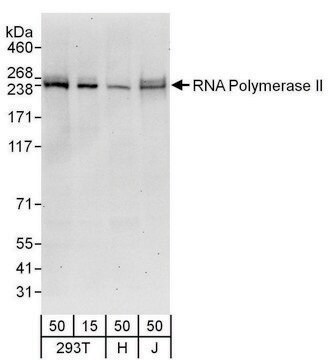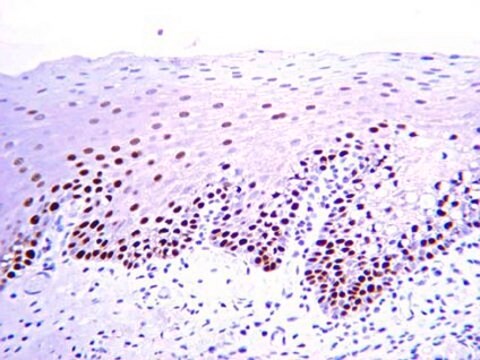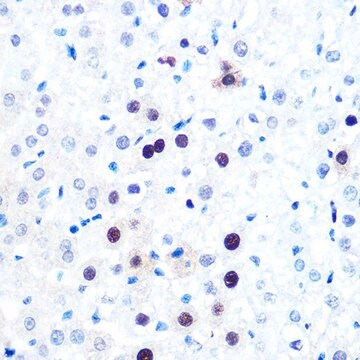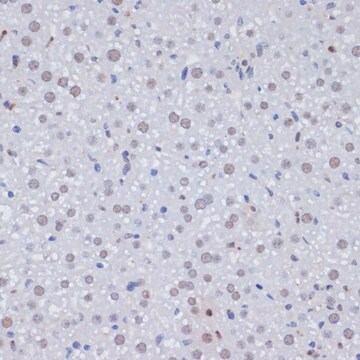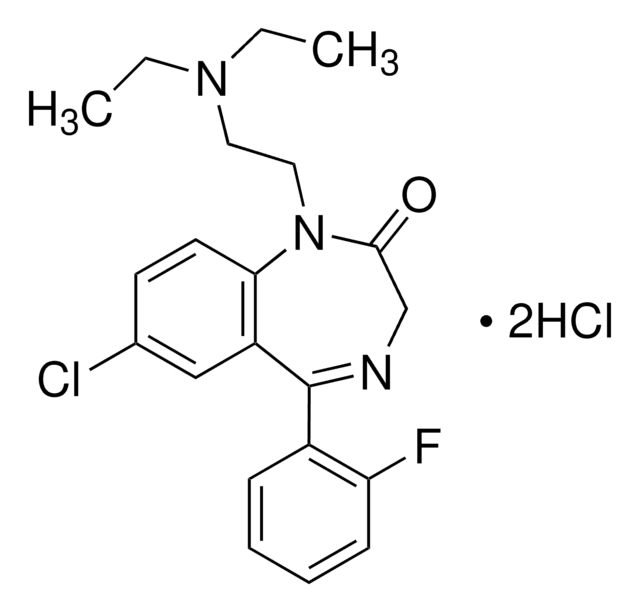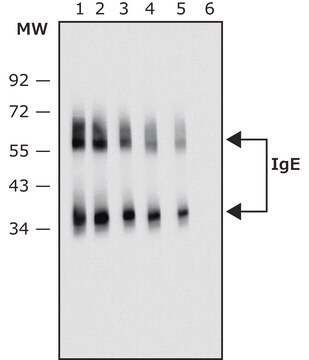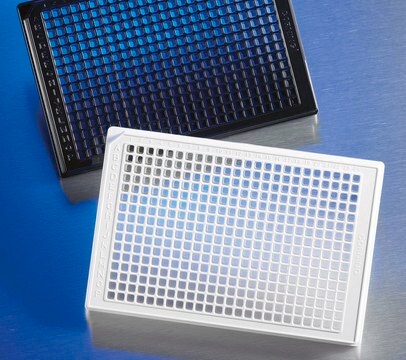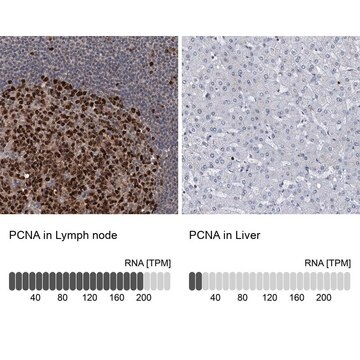PLA0079
Rabbit anti-PCNA Antibody, Affinity Purified
Powered by Bethyl Laboratories, Inc.
Synonim(y):
ATLD2, DNA polymerase delta auxiliary protein, PCNA, cyclin
About This Item
Polecane produkty
pochodzenie biologiczne
rabbit
Poziom jakości
forma przeciwciała
affinity purified immunoglobulin
rodzaj przeciwciała
primary antibodies
klasa czystości
Powered by Bethyl Laboratories, Inc.
reaktywność gatunkowa
human, mouse
metody
flow cytometry: 0.03 μg
immunohistochemistry: 1:2,000- 1:10,000
immunoprecipitation (IP): 2- 5 μg/mg
western blot: 1:1,000- 1:10,000
nr dostępu
P12004
numer dostępu UniProt
Warunki transportu
wet ice
temp. przechowywania
2-8°C
docelowa modyfikacja potranslacyjna
unmodified
informacje o genach
rabbit ... PCNA(5111)
Powiązane kategorie
Opis ogólny
Immunogen
Zastosowanie
- proximity ligation assay (PLA) (1:500)
- immunoblotting (1:2000)
- flow cytometry analysis
Działania biochem./fizjol.
Postać fizyczna
Inne uwagi
Oświadczenie o zrzeczeniu się odpowiedzialności
Nie możesz znaleźć właściwego produktu?
Wypróbuj nasz Narzędzie selektora produktów.
Kod klasy składowania
12 - Non Combustible Liquids
Klasa zagrożenia wodnego (WGK)
nwg
Temperatura zapłonu (°F)
Not applicable
Temperatura zapłonu (°C)
Not applicable
Wybierz jedną z najnowszych wersji:
Certyfikaty analizy (CoA)
Nie widzisz odpowiedniej wersji?
Jeśli potrzebujesz konkretnej wersji, możesz wyszukać konkretny certyfikat według numeru partii lub serii.
Masz już ten produkt?
Dokumenty związane z niedawno zakupionymi produktami zostały zamieszczone w Bibliotece dokumentów.
Nasz zespół naukowców ma doświadczenie we wszystkich obszarach badań, w tym w naukach przyrodniczych, materiałoznawstwie, syntezie chemicznej, chromatografii, analityce i wielu innych dziedzinach.
Skontaktuj się z zespołem ds. pomocy technicznej